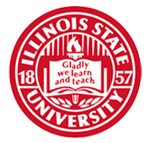Abstract
Racism is prevalent in the fields of healthcare and education in North America and speech-language pathology and audiology are no exception. Systemic and individual racism in educational, training, and clinical settings creates barriers for student entry and success, and negatively impacts client care. Although the ability to serve clients of diverse backgrounds is a crucial skill for students and clinicians, current educational curricula appears insufficient in supporting culturally diverse students and preparing all students to work with culturally diverse populations. This is, in part, due to a lack of diverse representation in education and clinical settings, bias experienced by SLP and audiology students in education programs, and problematic ways in which clinical information and race are presented in these educational programs. This paper aims to provide evidence informed guidance to SLP and audiology educators that will support their efforts to: 1. Develop students’ critical reflection and critical reflexivity skills. 2. Integrate racial and cultural diversity in the curricula. 3. Develop instructor competencies to create a safe learning environment. An example of a problem-based tutorial course in an SLP program is presented with a focus on clinical case development and small group learning experiences. Revision of curricula content with a focus on developing students’ lifelong skills in critical reflexivity may provide a foundation to equip SLPs and audiologists to address existing health disparities and improve client outcomes.
Recommended Citation
Chan, H.,
Tidd, C.,
Hamilton, J.,
Sperry, D.,
&
Phoenix, M.
(2024).
Addressing Bias in SLP Problem-Based Tutorials through Critical Reflexivity, Curriculum Development and Instructor Training.
Teaching and Learning in Communication Sciences & Disorders, 8(1).
DOI: https://doi.org/10.61403/2689-6443.1295




